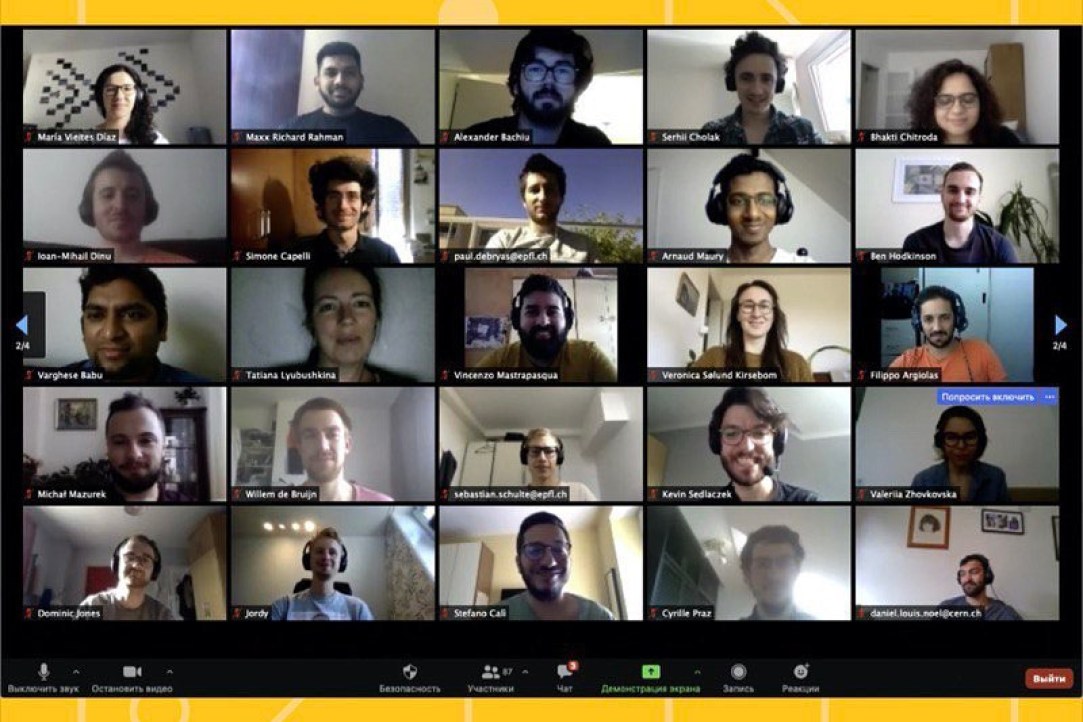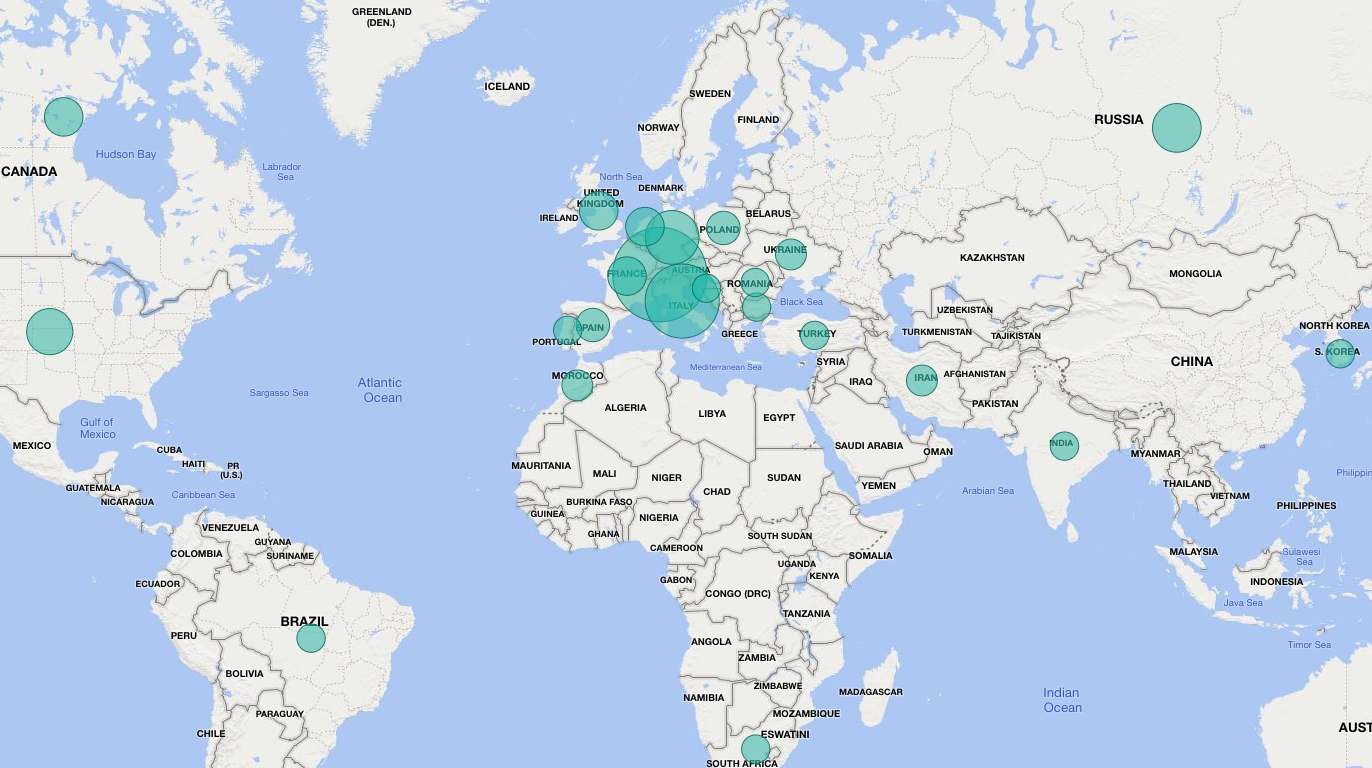Sixth Summer School on Machine Learning in High Energy Physics is completed

Laboratory of Methods for Big Data Analysis (LAMBDA) of the Faculty of Computer Science, HSE University held the sixth summer school on Machine Learning in High Energy Physics (MLHEP) on July 16-30. The school was organised in cooperation with Yandex School of Data Analysis and EPFL High Energy Physics Laboratory. This year the school was listed as an official EPFL course with 4 ECTS credits awarded to the participants successfully passing the school requirements.
The initial plan was to hold the school at the EPFL campus (Lausanne, Switzerland); however, due to pandemic, the school was organised online for the first time. The school team faced several challenges in distributing the content and communicating with students. In the end, the team utilised a combination of OBS Studio, Screencast-O-Matic, and iPad built-in tools. The content was uploaded to the novel Pelican teaching platform (https://en.pelican.study/) that supports various types of materials and student performance evaluation.
The school curriculum spanned over the following sections:
- Introduction into Machine Learning
- Introduction into Deep Learning
- Bayesian Deep Learning
- Generative models
- Optimisation methods
- Advanced topics
In addition, we have invited brilliant guest speakers from both Machine Learning (DeepMind, Facebook AI Research, IBM Research, MIT, Oxford) and HEP fields (INFN, SLAC, Yale University).
Michela Paganini
Facebook AI Research
Within each the sections 1-5, the time has been divided evenly between lectures and seminars. Most of the lectures have been pre-recorded, and the Q&A session was moved to the seminars. Due to the online format, the biggest challenge for the seminar was to allow effective communications with 100+ students during the interactive part. We had to deploy a CoCalc platform for online teaching. It has built-in JupyterLab functionality with the ability to share notebooks like Google Docs. At the same time, the platform has fantastic potential and flexibility to use GPU resources and to perform student assessment distribution and evaluation. Although it didn't work smoothly out of the box for us, with the help of our team we've made it run successfully in the end.
Thanks to the online format, the school has hosted twice as many students than usually. This year we shared our program with one hundred and fourteen participants, representing twenty-three countries and seventy-three universities. The map shows the geography of our participants.

Lara Mason
PhD student from the University of Johannesburg and the University of Lyon
Sara Celani
Second-year PhD student from EPFL
Andrey Ustyuzhanin
MLHEP school director and head of LAMDA lab
Lesya Shchutska
EPFL
We are very thankful to our partners Yandex and SIT, as well as our sponsors EPFL and IBM Research Zurich for making it happen. The next iteration of the school is planned to be at EPFL in summer 2021. We plan to run it in a blended online-offline format, mixing strengths of both.
